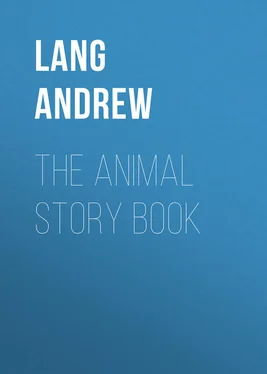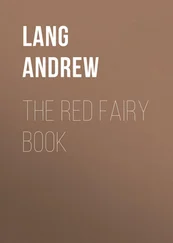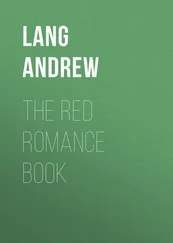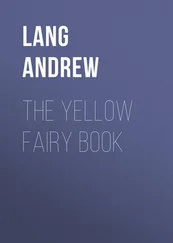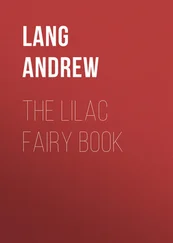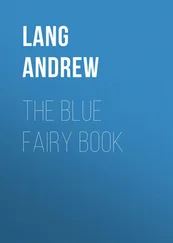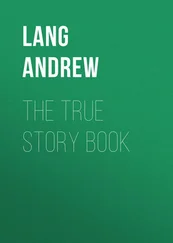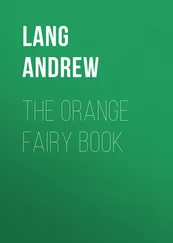Andrew Lang - The Animal Story Book
Здесь есть возможность читать онлайн «Andrew Lang - The Animal Story Book» — ознакомительный отрывок электронной книги совершенно бесплатно, а после прочтения отрывка купить полную версию. В некоторых случаях можно слушать аудио, скачать через торрент в формате fb2 и присутствует краткое содержание. Жанр: foreign_antique, foreign_prose, на английском языке. Описание произведения, (предисловие) а так же отзывы посетителей доступны на портале библиотеки ЛибКат.
- Название:The Animal Story Book
- Автор:
- Жанр:
- Год:неизвестен
- ISBN:нет данных
- Рейтинг книги:4 / 5. Голосов: 1
-
Избранное:Добавить в избранное
- Отзывы:
-
Ваша оценка:
- 80
- 1
- 2
- 3
- 4
- 5
The Animal Story Book: краткое содержание, описание и аннотация
Предлагаем к чтению аннотацию, описание, краткое содержание или предисловие (зависит от того, что написал сам автор книги «The Animal Story Book»). Если вы не нашли необходимую информацию о книге — напишите в комментариях, мы постараемся отыскать её.
The Animal Story Book — читать онлайн ознакомительный отрывок
Ниже представлен текст книги, разбитый по страницам. Система сохранения места последней прочитанной страницы, позволяет с удобством читать онлайн бесплатно книгу «The Animal Story Book», без необходимости каждый раз заново искать на чём Вы остановились. Поставьте закладку, и сможете в любой момент перейти на страницу, на которой закончили чтение.
Интервал:
Закладка:
It is not easy to know what buzzards in general think about things, but this one hated scarlet as much as any bull. Whenever he saw a red cap on any of the peasants’ heads, he would hide himself among the thick boughs overhanging the road where the man had to pass, and would nip it off so softly that the peasant never felt his loss. He would even manage to take off the wigs which every one wore then, and that was cleverer still, and off he would carry both wigs and caps to a tall tree in a park near by, and hang them all over it, like a new kind of fruit.
It is not easy to know what buzzards in general think about things, but this one hated scarlet as much as any bull. Whenever he saw a red cap on any of the peasants’ heads, he would hide himself among the thick boughs overhanging the road where the man had to pass, and would nip it off so softly that the peasant never felt his loss. He would even manage to take off the wigs which every one wore then, and that was cleverer still, and off he would carry both wigs and caps to a tall tree in a park near by, and hang them all over it, like a new kind of fruit.
As may be imagined, a bird so bold made many enemies, and was often shot at by the keepers, but for a long time it appeared to bear a charmed life, and nothing did it any harm. However, one unlucky day a keeper who was going his rounds in the forest, and who did not know what a strange and clever bird this buzzard was, saw him on the back of a fox which he had attacked for want of something better to do, and fired two shots at them. One shot killed the fox; the other broke the wing of the buzzard, but he managed to fly out of reach of the keeper, and hid himself. Meanwhile the tinkling of the bell made the keeper guess that this must be the priest’s pet, of which he had so often heard; and being anxious to do what he could to repair the damage he had done, he at once told the priest what had happened. The priest went out directly to the forest, and gave his usual whistle, but neither on that evening nor on several others was there any reply. At last on the seventh night he heard a low answer, and on searching narrowly all through the wood, the priest found the poor buzzard, which had hopped nearly two miles towards its old home, dragging its broken wing after it. The bird was very thin, but was enchanted to see his old master, who carried him home and nursed him for six weeks, when he got quite well, and was able to fly about as boldly as ever.
As may be imagined, a bird so bold made many enemies, and was often shot at by the keepers, but for a long time it appeared to bear a charmed life, and nothing did it any harm. However, one unlucky day a keeper who was going his rounds in the forest, and who did not know what a strange and clever bird this buzzard was, saw him on the back of a fox which he had attacked for want of something better to do, and fired two shots at them. One shot killed the fox; the other broke the wing of the buzzard, but he managed to fly out of reach of the keeper, and hid himself. Meanwhile the tinkling of the bell made the keeper guess that this must be the priest’s pet, of which he had so often heard; and being anxious to do what he could to repair the damage he had done, he at once told the priest what had happened. The priest went out directly to the forest, and gave his usual whistle, but neither on that evening nor on several others was there any reply. At last on the seventh night he heard a low answer, and on searching narrowly all through the wood, the priest found the poor buzzard, which had hopped nearly two miles towards its old home, dragging its broken wing after it. The bird was very thin, but was enchanted to see his old master, who carried him home and nursed him for six weeks, when he got quite well, and was able to fly about as boldly as ever.
COWPER AND HIS HARES
No one was fonder of animals, or kinder to them, than Cowper the poet, who lived towards the end of the last century; but of all creatures he loved hares best, perhaps because he, like them, was timid and easily frightened. He has left a very interesting account of three hares that were given to him when he was living in the country in the year 1774, and as far as possible the poet shall tell his own story of the friendship between himself and his pets – Puss, Tiney, and Bess, as he called them.
Cowper was not at all a strong man, and suffered terribly from fits of low spirits, and at these times he could not read, and disliked the company of people, who teased him by giving him advice or asking him questions. It was during one of these seasons of solitude and melancholy that he noticed a poor little hare belonging to the children of one of his neighbours, who, without meaning really to be unkind, had worried the little thing almost to death. Soon they got tired even of playing with it, and the poor hare was in danger of being starved to death, when their father, whose heart was more tender than theirs, proposed that it should be given to their neighbour Mr. Cowper.
Now Cowper, besides feeling pity for the poor little creature, felt that he should like to teach and train it, and as just then he was too unhappy to care for his usual occupations, he gladly accepted the present. In a very short time Puss was given two companions, Tiney and Bess, and could have had dozens more if Cowper had wanted them, for the villagers offered to catch him enough to have filled the whole countryside if he would only give the order.
However, Cowper decided that three would be ample for his purposes, and as he wished them to learn nice clean habits, he began with his own hands to build them a house. The house contained a large hall and three bedrooms, each with a separate bed, and it was astonishing how soon every hare knew its own bedroom, and how careful he was (for in spite of their names they were all males) never to go into those of his friends.
Very soon all three made themselves much at home in their comfortable quarters, and Puss, the first comer, would jump on his master’s lap and, standing up on his hind legs, would bite the hair on his temples. He enjoyed being carried about like a baby, and would even go to sleep in Cowper’s arms, which is a very strange thing for a hare to do. Once Puss got ill, and then the poet took care to keep him apart from the other two, for animals have a horror of their sick companions, and are generally very unkind to them. So he nursed Puss himself, and gave him all sorts of herbs and grasses as medicine, and at last Puss began to get better, and took notice of what was going on round him. When he was strong enough to take his first little walk, his pleasure knew no bounds; and in token of his gratitude he licked his master’s hand, first back, then front, and then between every finger. As soon as he felt himself quite strong again, he went with the poet every day, after breakfast, into the garden, where he lay all the morning under a trailing cucumber, sometimes asleep, but every now and then eating a leaf or two by way of luncheon. If the poet was ever later than usual in leaving the house, Puss would down on his knees and look up into his eyes with a pleading expression, or, if these means failed, he would seize his master’s coat between his teeth, and pull as hard as he could towards the window. Puss was, perhaps, the pleasantest of all the hares, but Bess, who died young, was the cleverest and most amusing. He had his little tempers, and when he was not feeling very well, he was glad to be petted and made much of; but no sooner had he recovered than he resented any little attentions, and would growl and run away or even bite if you attempted to touch him. It was impossible really to tame Tiney, but there was something so serious and solemn in all he did, that it made you laugh even to watch him.
Читать дальшеИнтервал:
Закладка:
Похожие книги на «The Animal Story Book»
Представляем Вашему вниманию похожие книги на «The Animal Story Book» списком для выбора. Мы отобрали схожую по названию и смыслу литературу в надежде предоставить читателям больше вариантов отыскать новые, интересные, ещё непрочитанные произведения.
Обсуждение, отзывы о книге «The Animal Story Book» и просто собственные мнения читателей. Оставьте ваши комментарии, напишите, что Вы думаете о произведении, его смысле или главных героях. Укажите что конкретно понравилось, а что нет, и почему Вы так считаете.
